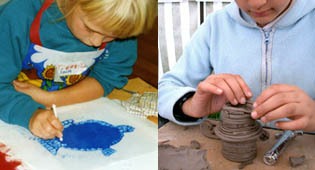











growing concerns
Who else thinks like this?
Michael Rosen -
Rosen gives an evocative example of the effect a formal testing regime on children has in practice -
It is from one of his regular articles "Letter from a curious parent" commenting on education policy and legislation in the Guardian (publ. 07/04/2015):
"Dear Mrs Morgan: Your guidance is a mini syllabus on how to wreck poetry
Along with many other poets, I receive many invites to go into schools to share my poetry with pupils, to talk about how and why we write and read poems. I’ve been doing this since 1974. We think it’s a good idea because teachers, children and poets value poetry. If you put a group of poets, teachers, pupils and parents in a room to talk about why we do this, we come up with a wide range of answers.
Here are some I’ve collected:
it’s a good way to open up conversations about our lives, experiences and feelings; poetry often uses the sound of words to express feelings without actually saying what those feelings are; it’s a good way to express "big ideas in small spaces"; suggest things without necessarily coming to a conclusion; express a single moment without necessarily relating the consequences; play with language without it having to be literal; confess things about our lives; soap-
Now, though, there’s an official view of what poetry is for: "Standards and Testing Agency, Key stage 1 English reading, sample questions, marks schemes and commentary for 2016 assessment".
Here we find Where Go the Boats? by Robert Louis Stevenson, followed by eight questions, their correct answers -
What messages about poetry does this guidance give, then?
First, we discover that we read a poem in order to "retrieve" exact and correct information from it, and we are supposed to "infer" exact and correct meanings from it. This means that it’s not for speculation, interpretation, or for making a connection between the reader and the poem at the level of empathy -
The "commentary" refers to pupils having to identify rhyming words and "simple literary language". The example given is the phrase "on either hand". But this is not literary, it’s a common everyday oral metaphor. Spotting rhyming words is a way of turning rhyming poems into train-
One question asks the pupils to "find and copy the line that tells you that the poet is not sure where the boats will end up". There is of course only one correct answer: "Where will all come home?" In fact, I spotted another couple of lines that suggest being not sure. Meanwhile, the examiner hasn’t noticed that it’s not "the poet" who is in this poem, it’s a child who is playing with boats. That’s how many poems work. Welcome to literary language, Mr/Ms Examiner.
A further question asks: "What would be another good title for the poem?". There are four possibles and you’re only allowed to pick one. This is a gross distortion of the poetry-
The final road-
Thank you, Ms Morgan."
resource link > Michael Rosen: Letter From a Curious Parent
what do we mean -
• there is special knowledge and understanding to be gained by making things
• childhood plays a vital part in this innovative process
a historical perspective
• observation, trial and error
• origins of maths
• patterns and geometry
facing the future
growing concerns
• Neil MacGregor
• Sherry Turkle
• Seymour Papert